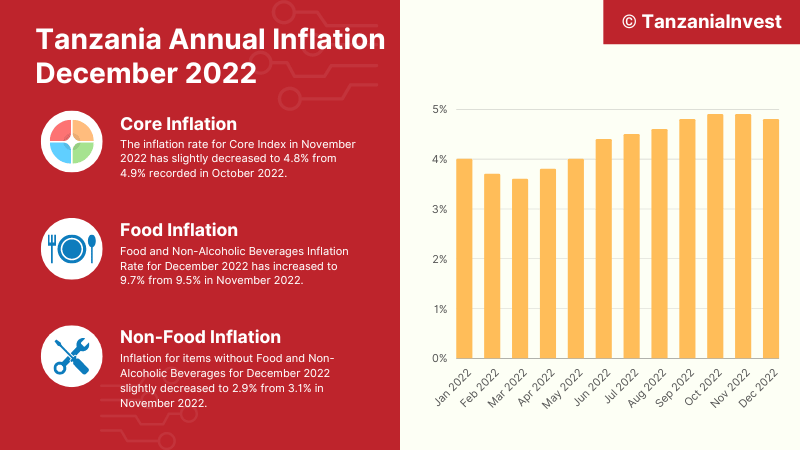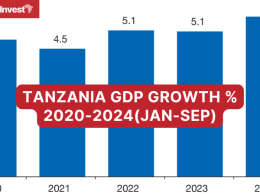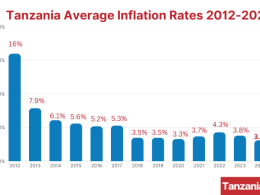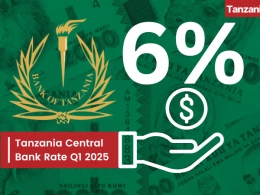The National Bureau of Statistics of Tanzania (NBS) revealed that the Annual Headline Inflation Rate for the month of December 2022 slightly decreased to 4.8% from 4.9% recorded at the year-end of November and October 2022.
This results in an average inflation rate of 4.3% for 2022. In 2021, the average inflation rate in Tanzania was 3.7%.
Although high, it remains within the target range of 3.0%-5.0% over the medium term included in the Tanzania Five-Year Development Plan (FYDP III).
Meanwhile, the overall index went up from 104.92 in December 2021 to 110.01 in December 2022.
On 7th January 2022, Mr. Emmanuel Mpawe Tutuba, Permanent Secretary of the Ministry of Finance and Planning was appointed as the Governor of the Central Bank of Tanzania (BOT).
BOT’s primary objective is to maintain price stability with monetary policies and a medium-term target inflation rate of 5%.
Tutuba expressed his commitment to working towards ensuring macroeconomic stability.
Food and Non-Alcoholic Beverages Inflation Rates
The Food and Non-Alcoholic Beverages Inflation Rate for December 2022 has increased to 9.7% from 9.5% which was recorded in November 2022.
On the other hand, the Annual Inflation Rate for all items without food and non-alcoholic beverages for December 2022 has slightly decreased to 2.9% from 3.1% that was recorded in November 2022.
Changes in Tanzania National Consumer Price Indices (NCPI) for December 2022, (2020 = 100)
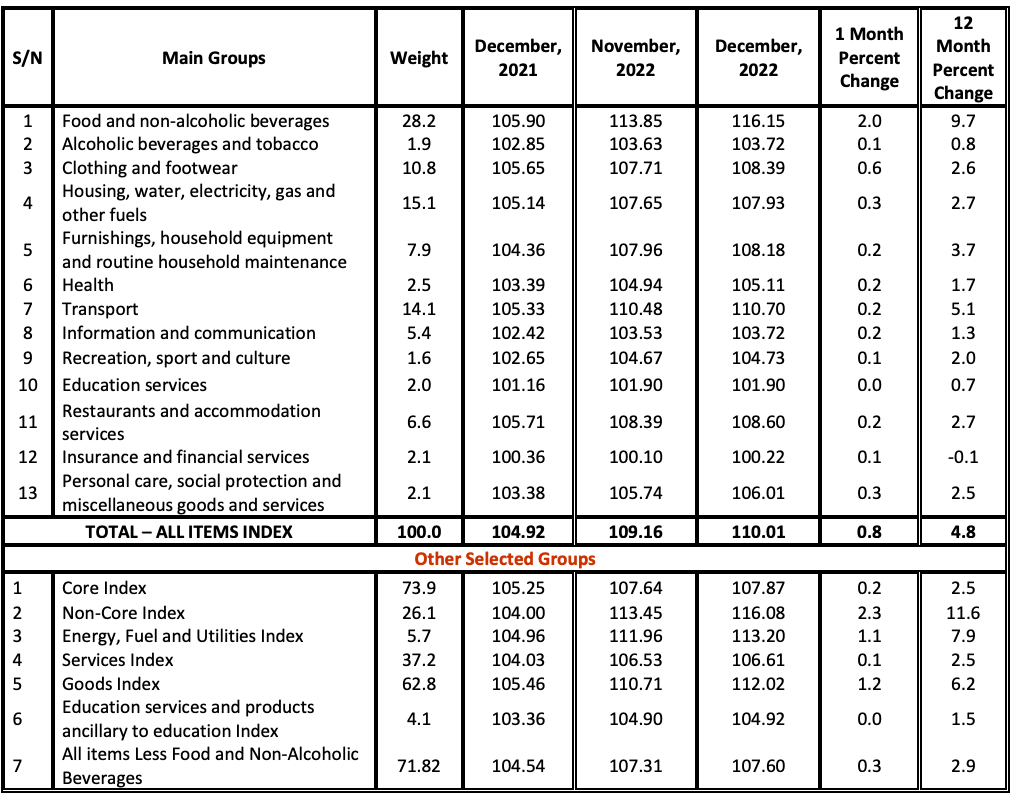
Tanzania Monthly Inflation Rate – December 2022
The National Consumer Price Index between November 2022 and December 2022 has increased by 0.8 %.
The increase in the overall index is attributed to a price increase for some food and non-food items.
Some food items that contributed to an increase of the index include: rice by 2.1%, maize grain by 3.2%, maize flour by 2.6%, traditionally bred live chicken by 0.8%, beef meat by 0.4%, fresh fish by 1.4%, dried sardines by 3.9%, fruits by 1.9%, groundnuts by 2.2%, vegetables by 5.3%, Irish potatoes by 3.3%, sweet potatoes by 3.4%, fresh cassava by 7.6%, cocoyams by 0.8%, cooking bananas by 3.1%, dried beans by 7.3%, dried lentils by 0.9%, dried peas by 4.7%, dried cowpeas by 3.7%, dry cassava by 7.9%, cassava flour by 4.1%, mineral waters by 0.8% and soft drinks by 2.2%.
Some Non-Food items that contributed to an increase in the index includes: clothing materials by 2.9%, garments for men by 0.3%, garments for women by 1.3%, garments for infants and children by 0.5%, footwear for women by 0.4%, footwear for infants and children by 0.6%, liquefied hydrocarbons (gas) by 1.4%, kerosene by 0.6%, firewood by 5.1%, diesel by 6.0% and goods and services for personal care by 0.6%.





